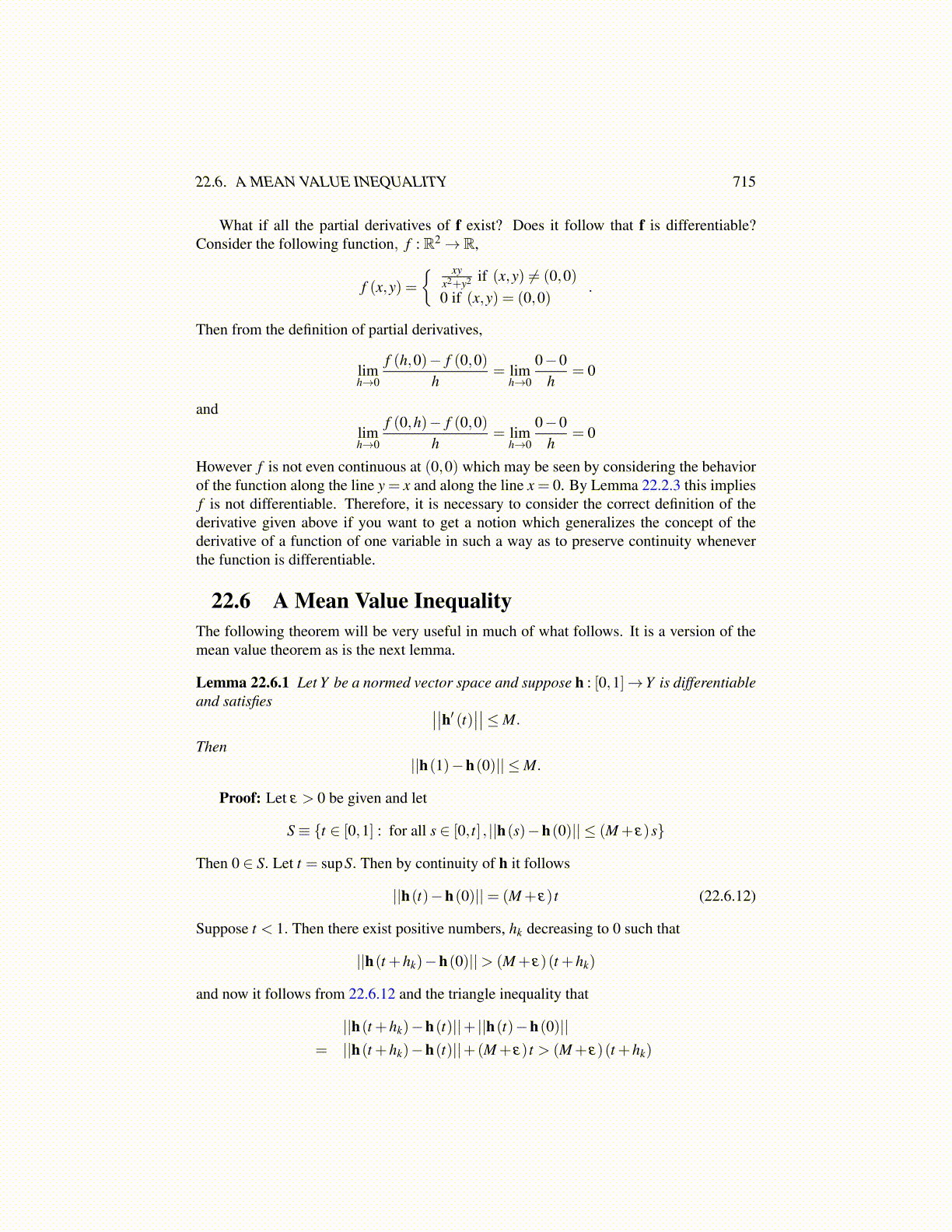
22.6. A MEAN VALUE INEQUALITY 715
What if all the partial derivatives of f exist? Does it follow that f is differentiable?Consider the following function, f : R2→ R,
f (x,y) ={ xy
x2+y2 if (x,y) ̸= (0,0)0 if (x,y) = (0,0)
.
Then from the definition of partial derivatives,
limh→0
f (h,0)− f (0,0)h
= limh→0
0−0h
= 0
and
limh→0
f (0,h)− f (0,0)h
= limh→0
0−0h
= 0
However f is not even continuous at (0,0) which may be seen by considering the behaviorof the function along the line y = x and along the line x = 0. By Lemma 22.2.3 this impliesf is not differentiable. Therefore, it is necessary to consider the correct definition of thederivative given above if you want to get a notion which generalizes the concept of thederivative of a function of one variable in such a way as to preserve continuity wheneverthe function is differentiable.
22.6 A Mean Value InequalityThe following theorem will be very useful in much of what follows. It is a version of themean value theorem as is the next lemma.
Lemma 22.6.1 Let Y be a normed vector space and suppose h : [0,1]→Y is differentiableand satisfies ∣∣∣∣h′ (t)∣∣∣∣≤M.
Then||h(1)−h(0)|| ≤M.
Proof: Let ε > 0 be given and let
S≡ {t ∈ [0,1] : for all s ∈ [0, t] , ||h(s)−h(0)|| ≤ (M+ ε)s}
Then 0 ∈ S. Let t = supS. Then by continuity of h it follows
||h(t)−h(0)||= (M+ ε) t (22.6.12)
Suppose t < 1. Then there exist positive numbers, hk decreasing to 0 such that
||h(t +hk)−h(0)||> (M+ ε)(t +hk)
and now it follows from 22.6.12 and the triangle inequality that
||h(t +hk)−h(t)||+ ||h(t)−h(0)||= ||h(t +hk)−h(t)||+(M+ ε) t > (M+ ε)(t +hk)